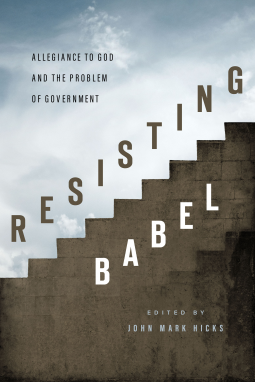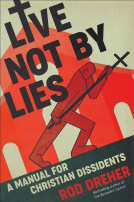
Resisting Babel
Allegiance to God and the Problem of Government
by John Mark Hicks
This title was previously available on NetGalley and is now archived.
Send NetGalley books directly to your Kindle or Kindle app
1
To read on a Kindle or Kindle app, please add kindle@netgalley.com as an approved email address to receive files in your Amazon account. Click here for step-by-step instructions.
2
Also find your Kindle email address within your Amazon account, and enter it here.
Pub Date Mar 03 2020 | Archive Date Sep 15 2020
Abilene Christian University Press & Leafwood Publishers | Abilene Christian University Press
Talking about this book? Use #ResistingBabel #NetGalley. More hashtag tips!
Description
After the trauma of the Civil War, David Lipscomb, a Nashville farmer and church leader, advocated for allegiance solely in the kingdom of God rather than in human governments. Resisting Babel tells the story of Lipscomb’s compelling, coherent, and eschatologically grounded vision, which fostered deep and significant religious reform in the United States and led to missionary zeal across the globe. That vision articulated a way forward for Christianity amidst the world powers, though it was later subverted by those powers, both by its own implicit assumptions from within and the overwhelming forces of Babel without. What happened among Churches of Christ during that time serves as a case study and parable of both possibility and warning for the modern church.
In this new book, Hicks has assembled the leading voices on David Lipscomb. Contributors include: • Richard T. Hughes, Scholar in Residence at Lipscomb University, is the leading historian of Churches of Christ and has authored the standard work on its history. • Richard Goode, professor of history at Lipscomb University, has written about and practiced Pilgrim political theology, which is indebted in part to David Lipscomb. • Lee C. Camp, professor of theology at Lipscomb University, is a leading ethicist among Churches of Christ. • Joshua Ward Jeffery, AP History teacher at the Orme School in Mayer, AZ, is a leading historian of the relationship between pacifism, the church, and World War I.
Advance Praise
Available Editions
| EDITION | Paperback |
| ISBN | 9781684264506 |
| PRICE | $16.99 (USD) |
Links
Average rating from 6 members
Featured Reviews
A series of essays regarding the political philosophy of David Lipscomb: its antecedents, its influence, its collapse among churches of Christ, and what ought to be its legacy.
Richard Hughes begins by anchoring Lipscomb in the "apocalyptic" tradition from Barton Stone and through Tolbert Fanning. John Mark Hicks, over two essays, details the nature of Lipscomb's political philosophy and uses his views on slavery and segregation as a case study. Richard Goode argues that Lipscomb fits into the tradition of the Christian pilgrim more than the Christian anarchist. Joshua Jeffery explained how the pacifist position of Lipscomb came under withering political persecution during World War I and how the view collapsed in churches of Christ. Lee Camp concluded with an assessment of Lipscomb's political ideology and its points of application and consideration for Christians today. The book also includes a chronological bibliography for Lipscomb and his political ideology.
The work does well at anchoring Lipscomb in the radical pacifist tradition, finding no real value in earthly government, finding it impossible to profess allegiance to a nation-state, considering voting an endorsement of whatever the candidate will eventually do, nonviolent in posture, yet in his apocalyptic stance certainly having a word to speak about the political issues of the day and seeking to identify with those with whom Jesus would have identified.
A lot of Camp's recommendations are very good, although Lipscomb can be faulted for not maintaining the tension about government in Scripture sufficiently. Romans 13 and Revelation 13 are both true at the same time: God empowers government for good, and those in it are corrupted by the Evil One and the powers and principalities for their own ends. Yes, God gave Israel a king in His wrath, and yet God's expected government of His people would feature King Jesus. Good can be accomplished through the coercive power of the nation-state, but it will not be the ultimate good which is accomplished in Jesus. There is a word of life which is to be spoken to those in government, but the Kingdom of God ought to remain transcendent of nation-states and their petty nationalisms, patriotisms, and partisanships.
A good resource for considering Lipscomb's political legacy, and all the more as the embrace of partisan politics is more and more exposed for the compromise and idolatry it is.
Fascinating. I'm admittedly a Christian Anarchist myself, but coming from the Southern Baptist Church... let's just say if they weren't in the Bible and they weren't a famous Baptist preacher, I likely didn't hear of any other Christian leaders of the first Millenium AD. So I had never heard of David Lipscomb, a late 19th century/ early 20th century leader in the Church of Christ denomination, before reading this book. Here, Hicks, Richard T Hughes, Richard Goode, Lee C Camp, and Joshua Ward Jeffery - all seemingly very learned historians on the subject at hand - discuss and dissect Lipscomb's beliefs and how they are reflected (or not) in the American Church today, both inside the Church of Christ denomination and within the larger community. If you're interested in this subject for any number of reasons, it is a fairly fascinating and illuminating discussion. But if you're not particularly interested in its subjects, you're probably not going to enjoy this effort as much, as it does tend to get quite academic and religious in its discussions. Still, I thoroughly enjoyed it and didn't note any overt problems with it, so let's end with a rating of "very much recommended".
Readers who liked this book also liked:
Harold Earls, IV; Rachel Earls
Biographies & Memoirs, Parenting, Families, Relationships










